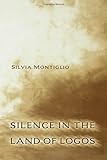Silence in the Land of Logos / Silvia Montiglio.
Material type: TextPublisher: Princeton, NJ : Princeton University Press, [2010]Copyright date: ©2000Edition: Course BookDescription: 1 online resourceContent type:
TextPublisher: Princeton, NJ : Princeton University Press, [2010]Copyright date: ©2000Edition: Course BookDescription: 1 online resourceContent type: - 9780691146584
- 9781400823765
- 880.9/38 880.938 938
- PA3015.S52 M66 2001
- online - DeGruyter
- Issued also in print.
| Item type | Current library | Call number | URL | Status | Notes | Barcode | |
|---|---|---|---|---|---|---|---|
 eBook
eBook
|
Biblioteca "Angelicum" Pont. Univ. S.Tommaso d'Aquino Nuvola online | online - DeGruyter (Browse shelf(Opens below)) | Online access | Not for loan (Accesso limitato) | Accesso per gli utenti autorizzati / Access for authorized users | (dgr)9781400823765 |
Browsing Biblioteca "Angelicum" Pont. Univ. S.Tommaso d'Aquino shelves, Shelving location: Nuvola online Close shelf browser (Hides shelf browser)

|

|

|

|

|

|

|
||
| online - DeGruyter Why Ethics? : Signs of Responsibilities / | online - DeGruyter Plato's Democratic Entanglements : Athenian Politics and the Practice of Philosophy / | online - DeGruyter Venom in Verse : Aristophanes in Modern Greece / | online - DeGruyter Silence in the Land of Logos / | online - DeGruyter Creating the National Security State : A History of the Law That Transformed America / | online - DeGruyter The Cybernetic Theory of Decision : New Dimensions of Political Analysis / | online - DeGruyter Disrupting Science : Social Movements, American Scientists, and the Politics of the Military, 1945-1975 / |
Frontmatter -- Contents -- Acknowledgments -- A Note on Sources -- SILENCE IN THE LAND OF LOGOS -- Introduction -- Chapter One. Religious Silence without an Ineffable God -- Chapter Two. A Silent Body in a Sonorous World: Silence and Heroic Values in the Iliad -- Chapter Three. The Poet's Voice against Silence -- Chapter Four. "I Will Be Silent": Figures of Silence and Representations of Speaking in Athenian Oratory -- Chapter Five. Words Staging Silence -- Chapter Six. Silence and Tragic Destiny -- Chapter Seven. Silence, a Herald of Death -- Chapter Eight. Silence, Ruse, and Endurance: Odysseus and Beyond -- Conclusion -- Select Bibliography -- Index
restricted access online access with authorization star
http://purl.org/coar/access_right/c_16ec
In ancient Greece, the spoken word connoted power, whether in the free speech accorded to citizens or in the voice of the poet, whose song was thought to know no earthly bounds. But how did silence fit into the mental framework of a society that valued speech so highly? Here Silvia Montiglio provides the first comprehensive investigation into silence as a distinctive and meaningful phenomenon in archaic and classical Greece. Arguing that the notion of silence is not a universal given but is rather situated in a complex network of associations and values, Montiglio seeks to establish general principles for understanding silence through analyses of cultural practices, including religion, literature, and law. Unlike the silence of a Christian before an ineffable God, which signifies the uselessness of words, silence in Greek religion paradoxically expresses the power of logos--for example, during prayer and sacrifice, it serves as a shield against words that could offend the gods. Montiglio goes on to explore silence in the world of the epic hero, where words are equated with action and their absence signals paralysis or tension in power relationships. Her other examples include oratory, a practice in which citizens must balance their words with silence in very complex ways in order to show that they do not abuse their right to speak. Inquiries into lyric poetry, drama, medical writings, and historiography round out this unprecedented study, revealing silence as a force in its own right.
Issued also in print.
Mode of access: Internet via World Wide Web.
In English.
Description based on online resource; title from PDF title page (publisher's Web site, viewed 08. Jul 2019)


